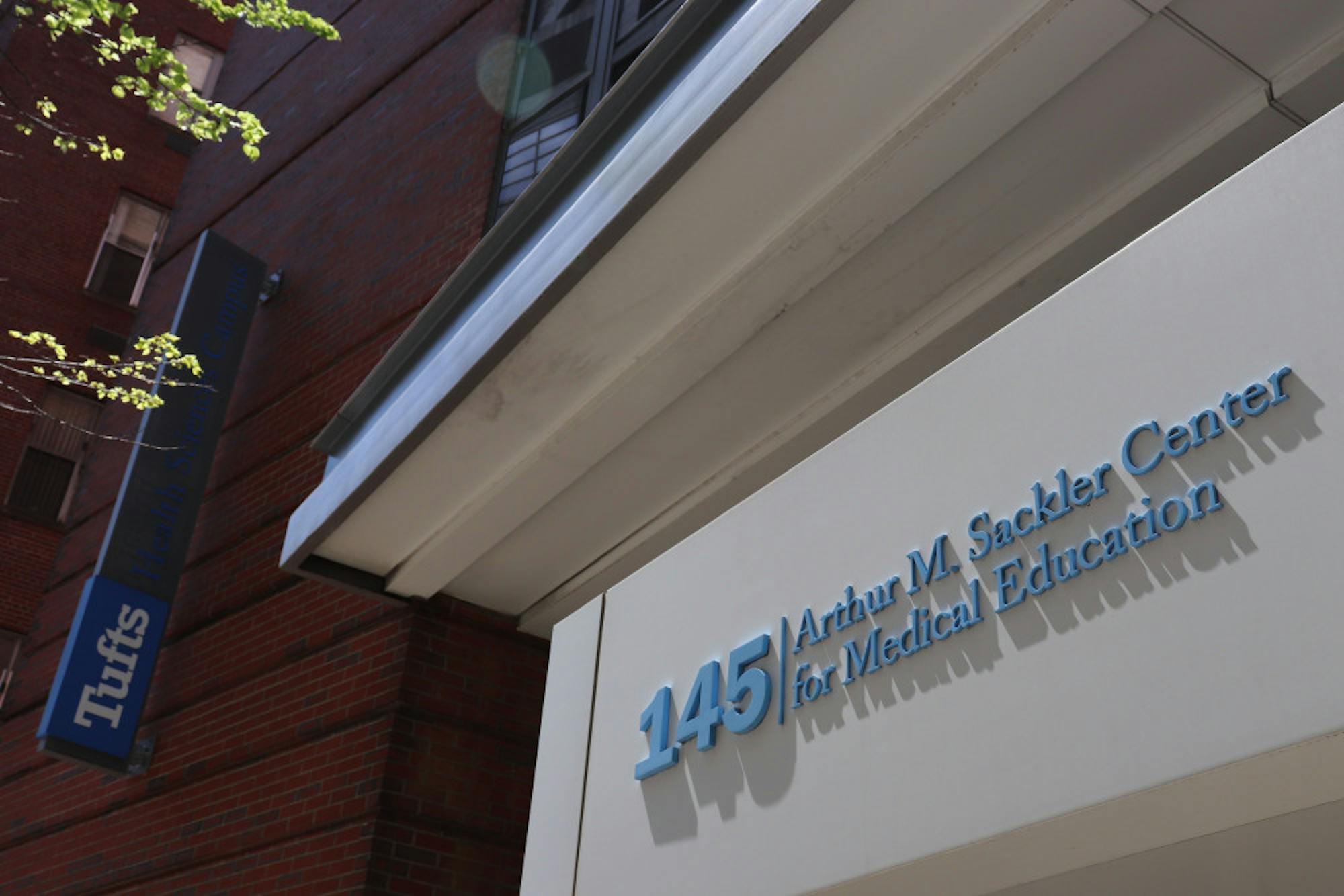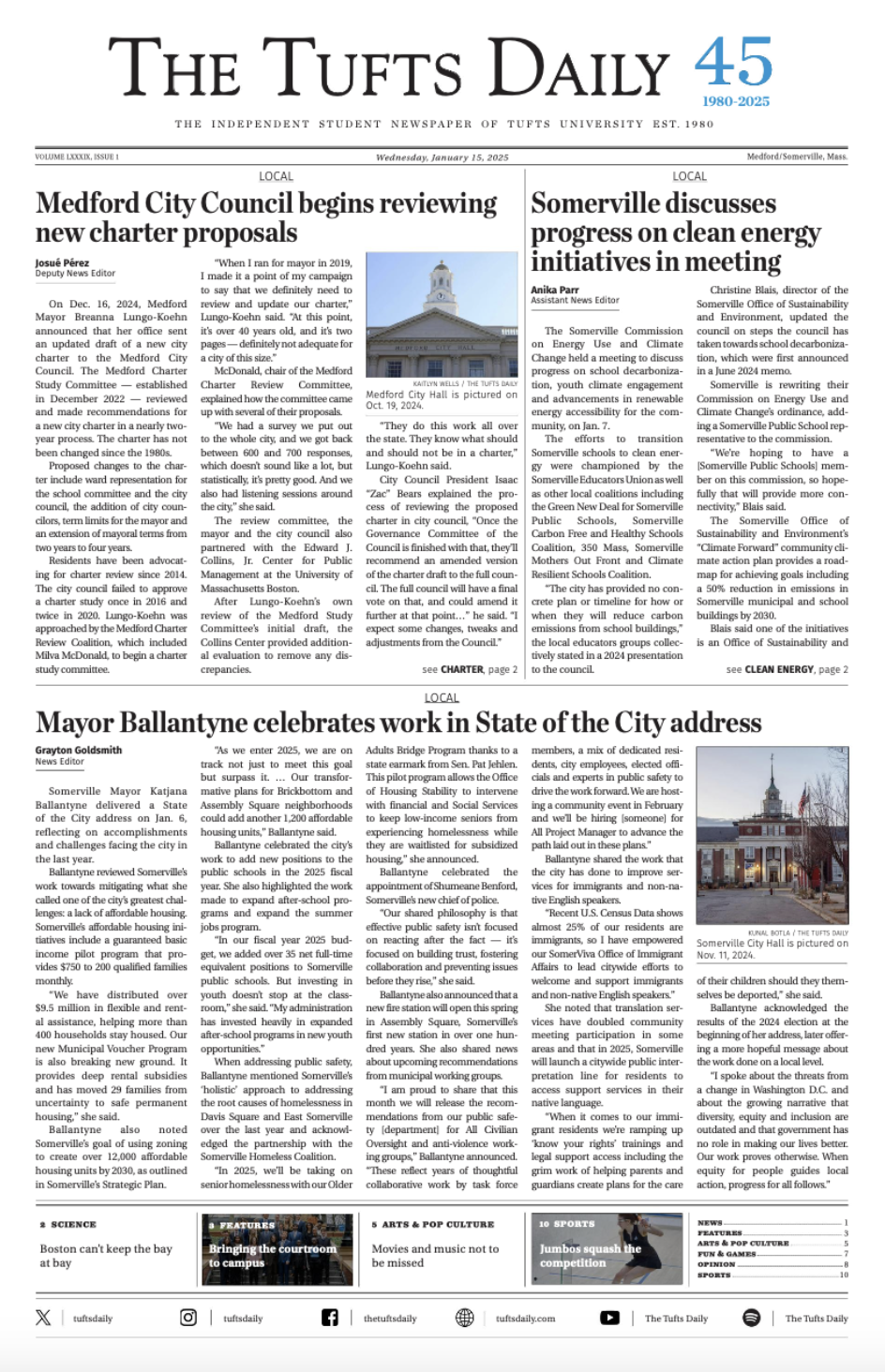Lawsuits against Purdue Pharma and the Sackler family, who own the company, have been paused until next month to provide the opportunity for the company to work out settlements for the nearly 2,600 suits against them, according to Associated Press reporting.
Among the suits paused, hundreds of local governments, including Medford and Somerville, were plaintiffs. Medford sued the Sackler family, while Somerville sued Purdue,alleging that the company and the family used false advertising which claimed opioids were not addictive, violated racketeering laws and created a public nuisance.
A federal judicial panel consolidated hundreds of local lawsuits around the country into one in the Northern District of Ohio last January, after which hundreds of municipalities, including Medford and Somerville, joined the suit.
Somerville’s 169-page complaint against the Connecticut-based drug manufacturer issigned by City Solicitor Francis Wright. Wright alleges that Purdue used deceptive marketing to push its marquee opioid painkiller Oxycontin, and that the city is still paying for the consequences.
Somerville sued 18 other drug makers and distributors, some of which, including McKesson and Teva, two manufacturers, and Cardinal Health, a distributor, reached a separate settlement with cities earlier this month.
In a February press conference, Somerville Mayor Joe Curtatone said that the drug makers and distributors needed to be held accountable for the epidemic they created and enumerated the costs the city had incurred responding to the crisis.
The City of Somerville declined to comment on ongoing litigation, as the details of the settlements are still ongoing and some of the suits, like the one against Walgreens, are still scheduled for trial.
“It shouldn’t be this way,” Curtatone said. “Limited city, and school, and public safety and time shouldn’t have to be diverted to combat a health crisis that we believe could have been avoided, or at least significantly reduced.”
Medford Mayor Stephanie Burke echoed Curtatone in a statement following her city’s filing.
“We are determined to stop this epidemic from further destroying the lives of the people in our community. This lawsuit is one part of the collaborative effort that is needed by municipal, state and federal leaders along with lawmakers, doctors, law enforcement and health officials to join forces to find workable solutions," Burke said in a statement at the time.
In the background of these recent developments of accountability against the Sackler family and Purdue Pharma remains Tufts’ own long-standing relationship with the Sackler family.
As reported by the Daily, the university has received significant gifts from the Sackler family including an endowment establishing the Sackler School of Graduate Biomedical Studies, the Arthur M. Sackler Center for Medical Education and funding the master's degree in Pain Research, Education & Policy (PREP) degree program offered by the Sackler school.
In the wake of Massachusetts Attorney General Maura Healey’s suit against Purdue Pharma in the middle of 2018, Tufts announced a review of its relationship to the Sacklers, overseen by Donald Stern, a former U.S. Attorney for the District of Massachusetts.
Although the review was launched last spring, Tufts’ Executive Director of Public Relations Patrick Collins refrained from commenting on the progress of the report, telling the Daily that the review is ongoing.
As the review now drags into its eighth month, students and alumni have become increasingly frustrated with the universities slow pace.
One alumna, Julia Zubiago (LA'18, M'19), who holds a master's degree in public health, expressed her frustrations.
“I think that the administration has been very slow to act. There has been a ton of evidence about the Sacklers’ undue and criminal influence on medical prescribing, and Tufts has chosen to play a waiting game,” she said.
Zubiago noted she believes Healey’s suit as well as other sources that document the relationship contain sufficient evidence alone for the school to take action.
“We want Tufts to remove the Sackler name from the building, and ideally stop taking money from the Sacklers,” Zubiago said.
Similarly, Nathan Foster (LA'18), a member of the activist group Sack Sackler, called on Tufts to go beyond cutting ties with the Sacklers.
“Tufts needs to cut ties with the Sackler family, but that’s not enough. Tufts needs to acknowledge the harm its relationship has caused by making real commitments to help opioid survivors and by strengthening community oversight of donations so this doesn’t happen again,” he said.
Zubiago was similarly critical of Tufts, saying that while she appreciates the education she got at Tufts, she believes Tufts is not treating its communities fairly.
“I am aghast at the way Tufts is handling the Sackler situation. I feel denying that connection rather than admitting the Sacklers are criminally liable and that it is wrong to take money from them shows complete disrespect for people in recovery or still living with addiction or whose loved ones are in the prior two categories,” she said.
Tufts is not alone in reconsidering its relationship with the Sackler family, with many schools, including Columbia University and Yale University, already announcing that they will refuse donations from any Sackler-related groups.
Alexander Thompson contributed reporting to this article.
Medford, Somerville lawsuits against Purdue Pharma, Sacklers on hold

The former Arthur M. Sackler Center for Medical Education is pictured on June 19.





